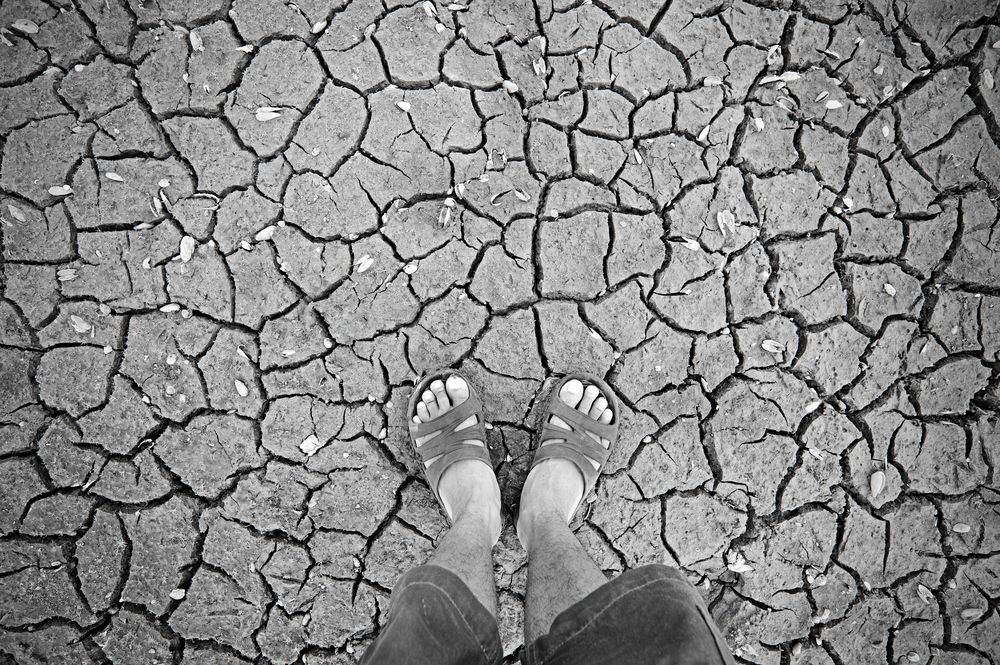It is a truism that climate change is going to hit poor countries earlier and harder than it hits rich countries. A paper from the National Bureau of Economic Research — “Climate Change and Economic Growth: Evidence from the Last Half Century” — helps illumnate one aspect of why it’s true. (It’s an older paper, but I just discovered it; thanks to Tim Kovach for the tip.) It’s worth mulling over the findings a bit.
The research is quite clever, mainly in its simplicity. Instead of using complicated models built on all sorts of assumptions, the researchers tracked the correlation of a few simple variables:
Rather than identifying mechanisms one-by-one and summing up, we examine the effects of temperature and precipitation on a single aggregate measure: economic growth [from 1950 to 2003].
This approach is both brilliant and limited. It cannot really tell us how climate change will affect economic growth, since the threat of climate change is less year-to-year fluctuations in weather than a steady increase in rate and size of those fluctuations. Just because one degree knocks one percentage point off growth doesn’t mean four degrees would knock only four points off. These things are not linear.
Nonetheless, data from the past can tell us something important: countries’ baseline vulnerability to heat. Here’s the primary finding:
Our main results show large, negative effects of higher temperatures on growth, but only in poor countries. In poorer countries, we estimate that a 1°C rise in temperature in a given year reduces economic growth in that year by about 1.1 percentage points. In rich countries, changes in temperature have no discernible effect on growth.
There you have it in a nutshell. Normal heat fluctuations hurt poor countries but not rich countries. Why? Part of it is that poor countries are more dependent on agriculture, which is sensitive to heat. But the biggest reason is access to energy, or more specifically, something wealthy countries take for granted: air conditioning. It’s hard to exaggerate the effect air conditioning has had in unlocking economic growth. (Of course, burning coal to air-condition buildings also accelerates climate change, so, ha ha, irony!)
The great question of the century is, how much extra heat — or storms, or droughts, or fires — will it take to start biting into the economic growth of wealthy countries? Because until that happens, it’s tough to see where they’ll find the political will to start spending big on climate mitigation and adaptation.
Poor countries, however, are getting screwed right here and now. And they will get screwed harder and harder in coming years, suffering the effects of carbon emissions for which they are not responsible. It’s kind of a shitty deal.




